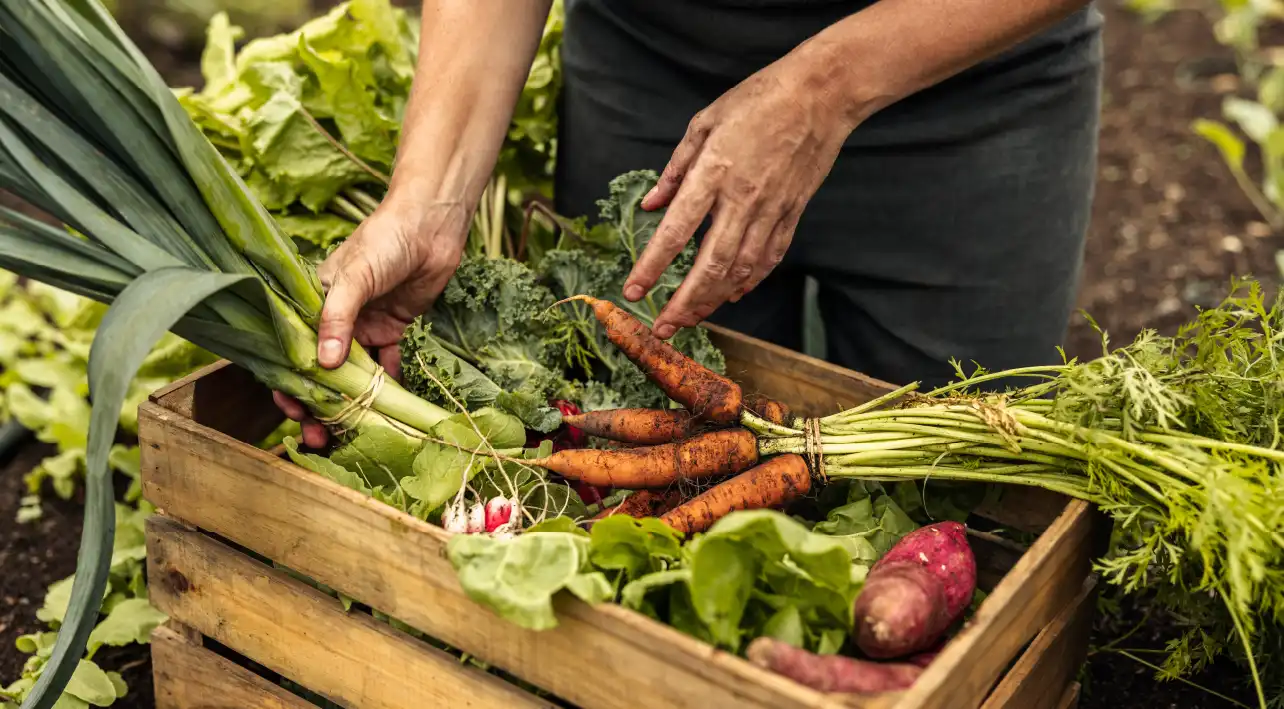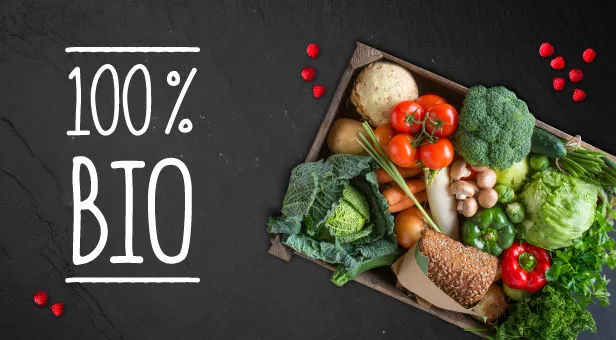06/03/2025
Eating healthily - what's really good for us
Gut-brain axis: How food influences our thoughts and feelings
These personal experiences coincide with scientific findings about the close connection between the gut and the brain:
Exciting facts about the gut-brain axis
The gut-brain axis describes the communication between the brain and our gastrointestinal tract with its inhabitants, the gut microbiota - in both directions.
- About 80 % of the signals are sent from the gut to the brain, only about 20 % in the opposite direction.
- Food additives can promote hyperactive behaviour in children. (2-5)
- Blood sugar levels that are too high, but also too low, as occur after eating sugar, white flour and other readily available carbohydrates, can lead to tension and anger in diabetics. (6)
- The gut produces around 90 % of the body's own serotonin, a neurotransmitter that is often referred to as the ‘happiness hormone’ due to its mood-enhancing effect. Our gut microbiome can influence anxiety, depression and our behaviour under stress. (7, 8)
- The influence of nutrition on the psyche appears to be stronger in women than in men. (9)
A healthy diet is individual
What is good for us and how well we tolerate something varies from person to person. Pesticides, such as those used in conventional agriculture, and additives are of course harmful to everyone. That's why organic is the better choice for everyone. But even with healthy foods such as wholemeal products and raw food, there are big differences. What is good for one person is not necessarily good for another. There is simply no such thing as THE diet for everyone.

Experiment and listen: How do I find out what is good for me?
Quality makes all the difference: not all organic products are the same
Consumption with caution: coffee, alcohol and conscious consumption

Enjoyment starts with shopping
Healthy eating in everyday life
Conclusion:Nutrition as a conscious decision for greater well-being
References
- Study by the FOM University of Applied Sciences, Germany: https://www.fom.de/de/presse/2024/dezember/das-nehmen-sich-die-deutschen-fuer-2025-vor.html (Accessed on 7.2.2025)
- https://www.pharmazeutische-zeitung.de/pharm3-26-2005/ (Accessed on 7.2.2025) based on Bateman, B., et al., The effects of a double blind, placebo controlled, artificial food colourings and benzoat preservative challenge on hyperactivity in a general population sample of preschool children. Arch. Dis. Child 89 (2004) 506-511.
- https://www.pharmazeutische-zeitung.de/ausgabe-372007/hyperaktiv-durch-lebensmittelfarben/ (Abruf vom 7.2.2025) besed on McCann D, et al.: Food additives and hyperactive behaviour in 3-year-old and 8/9-year-old children in the community: a randomised, double-blinded, placebo-controlled trial. Lancet. 2007 Nov 3;370(9598): 1560–1567. doi: 10.1016/S0140-6736(07)61306-3. Erratum in: Lancet. 2007 Nov 3;370(9598):1542. PMID: 17825405.
- Nigg JT, et al.: Meta-analysis of attention-deficit/hyperactivity disorder or attention-deficit/hyperactivity disorder symptoms, restriction diet, and synthetic food color additives. J Am Acad Child Adolesc Psychiatry. 2012 Jan;51(1):86–97.e8. doi: 10.1016/j.jaac.2011.10.015.
- Miller MD, et al.: Potential impacts of synthetic food dyes on activity and attention in children: a review of the human and animal evidence. Environ Health. 2022 Apr 29;21(1):45. doi: 10.1186/s12940-022-00849-9. PMID: 35484553; PMCID: PMC9052604.
- https://www.diabetes-deutschland.de/archiv/archiv_3015.htm (Accessed on 7.2.2025)
- Baghai TC, Rupprecht, R: Mikrobiota-Darm-Hirn-Achse. Dickdarmmikrobiom, Stressregulation, Inflammation und Psyche. Der Neurologe & Psychiater 2015; 16 (9); 30–34
- https://www.pharmazeutische-zeitung.de/darmbakterien-beeinflussen-psychische-gesundheit/ (Abruf vom 7.2.2025) besed on Valles-Colomer M, et al. The neuroactive potential of the human gut microbiota in quality of life and depression. Nat Microbiol 2019, 4, 623–632. https://doi.org/10.1038/s41564-018-0337-x
- https://www.neurologen-und-psychiater-im-netz.org/neurologie/news-archiv/artikel/gesunde-ernaehrung-kommt-auch-der-psyche-zugute/ (Abruf vom 7.2.2025) based on Begdache L, Patrissy CM: Customization of Diet May Promote Exercise and Improve Mental Wellbeing in Mature Adults: The Role of Exercise as a Mediator. J. Pers. Med. 2021, 11, 435. https://doi.org/10.3390/jpm11050435

































